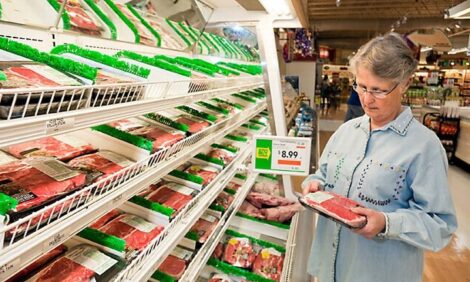



Brazilian Schools Eat Organic Beef
BRAZIL - Professor Vanderlei Rosa de Oliveira School is one of the 130 public schools in Campo Grande, the capital of Mato Grosso do Sul state, to include organic meat on their menu. Since April 2010 they have procured meat from certified cattle ranches in the Pantanal, where WWF-Brazil supports organic beef production.This innovation was made possible through a bidding process launched by the municipal government in the beginning of 2010 to source food supplies for school lunches. A preference for organic products was included among the selection criteria. Currently, the municipal school network buys 11,000kg monthly (around 24,200 pounds) of organic meat to feed 70,000 students attending public schools.
The city’s food supply director, Danilo Medeiros Figliorino, explained that the goal of including organic meat in school luncheons was to offer students healthy and environmentally friendly food. “In Mato Grosso do Sul, eating beef is a tradition. By choosing organic meat, we try to value our regional production,” said Mr Figliorino.
Michael Becker, WWF-Brazil’s Pantanal Program Coordinator, is pleased with the city’s shift organic meat in schools. “It’s one further incentive for sustainable production in the Pantanal,” he said.
Since 2003, WWF-Brazil has supported certified organic cattle ranching in the Pantanal, with the goal of conserving the region’s wetlands. At 10 times the size of the Florida Everglades, this huge wetland ecosystem is home to the greatest concentration of wildlife in South America. Working with the cattle industry is crucial for conservation, as ranching is one of the main economic activities in the region.
President of the Brazilian Organic Cattle Ranching Association, Leonardo Leite de Barros, praises the initiative by Campo Grande’s municipal government.
“Initiatives like this give greater visibility to the organic segment and reward producers who are committed to sustainability,” he said. He believes that, besides the city’s influence, the consumer also has an important role to play. “By choosing a product with certified origin, the consumer contributes to the country’s environmental sustainability,” said Mr Barros.
TheCattleSite News Desk


